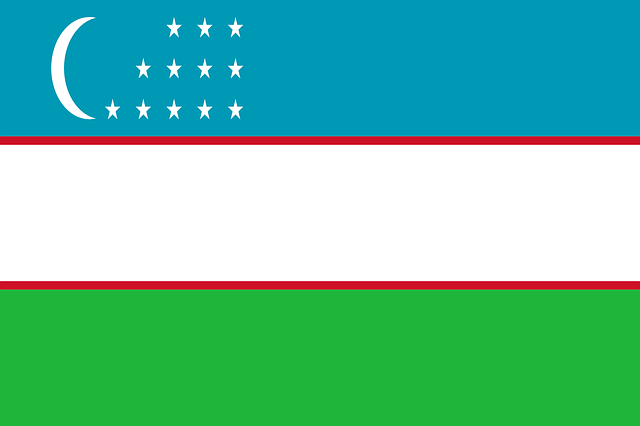Tashkent, Uzbekistan
In a visit that has attracted significant attention from international observers and diplomats alike, German Chancellor Olaf Scholz arrived in Tashkent this week to meet with Uzbek President Shavkat Mirziyoyev. The high-profile trip marks a crucial moment in the ongoing transformation of Uzbekistan, a country which is now on the cusp of a democratic shift. Chancellor Scholz’s visit comes at a pivotal time for the Central Asian nation as it prepares for its 2024 parliamentary elections, which are widely seen as a barometer of Uzbekistan’s commitment to political liberalization.
Scholz’s presence in Uzbekistan is more than just a diplomatic courtesy—it is a powerful endorsement of the liberal reforms that Mirziyoyev has implemented since coming to power in 2016. It also reflects Europe’s growing interest in Uzbekistan’s stability and economic potential. As the 2024 elections approach, Scholz’s visit sends a clear message: the international community is watching, and the future of Uzbekistan’s democracy hinges on the credibility and transparency of the electoral process.
A New Chapter in German-Uzbek Relations
Chancellor Scholz’s trip is the first visit by a German leader to Uzbekistan in over a decade, signaling a new phase in relations between the two nations. Germany has long been one of Uzbekistan’s largest trading partners within the European Union, and economic cooperation between the two countries has deepened since Mirziyoyev took office. Under Karimov, the previous regime, Uzbekistan remained isolated, with limited foreign investment and strained relations with many Western countries. But the liberal reforms enacted by Mirziyoyev have transformed this dynamic, opening the door for greater international engagement.
For Chancellor Scholz, the visit is also a strategic move. Uzbekistan, with its vast natural resources and growing economy, is becoming a key player in Central Asia. As the EU seeks to diversify its energy sources and reduce its reliance on Russian energy supplies, Uzbekistan’s renewable energy potential have become increasingly important to Europe.
However, Scholz’s visit is not just about economics. It comes at a time when Uzbekistan is undergoing a political transformation that has captured the attention of global leaders. In a joint press conference, Scholz praised Uzbekistan’s progress toward democratic governance and highlighted the significance of the upcoming elections.
“The reforms undertaken by President Mirziyoyev are impressive, but much remains to be done to ensure that these changes are irreversible,” Scholz said. “The upcoming parliamentary elections will be a crucial test of Uzbekistan’s commitment to building a democratic future. Germany and the European Union are ready to support Uzbekistan on this path.”
Liberal Reforms: A Focus of the Visit
Central to Scholz’s visit were discussions around Uzbekistan’s ongoing liberal reforms. Since 2016, Mirziyoyev has pursued a comprehensive reform agenda aimed at modernizing Uzbekistan’s political, economic, and social systems. The German chancellor’s presence in Tashkent was seen as a validation of these efforts, particularly as the country prepares for its parliamentary elections in December 2024.
Under Mirziyoyev’s leadership, Uzbekistan has made significant strides in improving human rights, releasing political prisoners, and enhancing media freedom. These reforms represent a marked departure from the autocratic rule of Islam Karimov, Mirziyoyev’s predecessor, who governed the country with an iron fist for more than two decades. Scholz’s visit underscores the importance of these reforms not just for Uzbekistan, but for the broader region.
Germany, as one of Europe’s leading democracies, has been closely watching the developments in Uzbekistan. German officials have repeatedly emphasized the need for political liberalization to go hand in hand with economic reforms. Chancellor Scholz’s visit, therefore, can be seen as an endorsement of the progress made so far.
“Democratic governance is not achieved overnight, but the foundations have been laid in Uzbekistan,” Scholz remarked. “Germany stands ready to support further liberalization, including through strengthening civil society, ensuring freedom of the press, and guaranteeing free and fair elections.”
The Importance of the 2024 Elections
The upcoming parliamentary elections are set to be the most competitive in Uzbekistan’s recent history. Multiple political parties with diverse platforms will be contesting seats in the parliament, reflecting a broadening of political pluralism in the country. The elections are also the first to take place under the new constitutional framework passed in 2023, which increases the powers of parliament. These changes are part of Mirziyoyev’s broader plan to decentralize power and enhance checks and balances in the government.
For Chancellor Scholz, the elections represent a critical moment in Uzbekistan’s political evolution. While the reforms implemented thus far are promising, Scholz made it clear during his visit that the integrity of the electoral process will be key to solidifying Uzbekistan’s democratic credentials.
International observers, including the Organization for Security and Cooperation in Europe (OSCE), have already committed to monitoring the elections, ensuring that the voting process is transparent and free from interference. Scholz’s visit, according to analysts, adds weight to these efforts and underscores the European Union’s investment in Uzbekistan’s democratic future.
“The world is watching,” said Sabine Fischer, a political analyst specializing in Central Asia. “Chancellor Scholz’s visit signals that Europe is invested in Uzbekistan’s success. The elections will be a test of the country’s commitment to the reforms, and any backsliding could have serious consequences for its relations with the EU.”
Economic Opportunities and Human Rights Concerns
While much of Scholz’s visit focused on political reforms, economic cooperation was also a key theme. Germany and Uzbekistan signed several bilateral agreements during the visit, covering sectors such as renewable energy, infrastructure, and technology. Uzbekistan’s efforts to diversify its economy and reduce its reliance on traditional industries like cotton and natural gas have been supported by European investments, with German companies leading the charge.
However, Scholz did not shy away from addressing lingering concerns about human rights and the pace of political reform. During his meetings with Uzbek officials, the German chancellor raised issues such as the need for greater judicial independence and the protection of civil liberties. Scholz’s comments reflect a broader European concern that, while Uzbekistan has made progress, much more is needed to ensure that liberalization is sustainable and not merely cosmetic.
The Geopolitical Implications
Scholz’s visit also has significant geopolitical implications. As Central Asia becomes an increasingly important region in global politics, Uzbekistan’s role as a stable and reform-oriented state is critical. Europe, wary of Russia’s influence in the region and China’s growing economic footprint, sees Uzbekistan as a key partner in ensuring stability and fostering democracy in the region.
For Uzbekistan, Scholz’s visit is a diplomatic victory, underscoring its growing importance on the world stage. Mirziyoyev’s government has sought to balance its relations with traditional allies like Russia and new partners in the West. Scholz’s visit is a clear sign that Europe is willing to engage with Uzbekistan as it continues its reform process.
As Uzbekistan looks toward its future, Chancellor Scholz’s visit has sent a strong message: the world is watching, and Europe is invested in Uzbekistan’s democratic and economic transformation. With the 2024 elections on the horizon, the stakes could not be higher. The outcome will determine whether Uzbekistan continues on its path toward liberalization or reverts to its autocratic past. For now, the international community remains cautiously optimistic.




